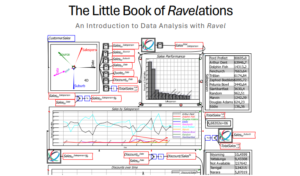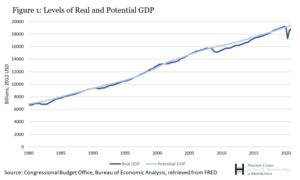This post is part of a series of posts that summarizes the book Angrynomics by Eric Lonergan and Mark Blyth.
If you found this post via search, it probably makes sense to start with the link to the full series, which is both here, and above.
Table of Contents
Angrynomics and the inequality that exists within capital too!
But weirdly, the inequality created by capitalism 3.0 exists WITHIN capital as well.
Capitalism 3.0 increased competition within capital: fewer winners
Even within the competition for profits between capitalists (as contrasted with workers working within a capitalist economy), there are fewer winners than there used to be.
Razor-thin margins
A big part of this is more and more forms are running on thinner and thinner margins. If they don’t, they’re undercut by a competitor.
Then you get instances of the big players in a sector intentionally selling stuff BELOW cost specifically in order to drive competitors out of business.
Living on the edge
This pushes more and more companies to the edge of financial solvency.
External shocks push them over
And just as some external shock can push households over the financial edge, external shocks can push companies over the financial edge.
The 2008 great financial crisis and the 2020 Covid pandemic were two such events.
And in the rush to bail out big businesses, smaller enterprises and Main St businesses were left to sink or swim mostly on their own.
Some had no choice but to close, others were “lucky” to be able to be acquired by a larger competitor.
Survival requires low wages, zero-hour contracts, the gig economy
And this environment of lower margins and living closer to the edge of financial solvency REQUIRES low pay for workers.
It requires low wages, zero-hour contracts, and gig economy pay structures.
Companies feel they have to economize everywhere they can, and when labour is a commodity, it’s “just” another area in which to economize.
In capitalism 3.0 income goes to capital, not labour
And as a result of how companies NEED to spend less and spend less on labour when a company has a great quarter or year, financial benefits of increased productivity THEN go to the owners, the capitalists, and not the workers.
Stagnant wages lead workers to join the gig economy
Which in turn is driving workers who feel they need greater income to work at side hustles, mostly within the gig economy, which adds a bit more fuel to the fire.
“Your GDP, not ours”!
The book describes a very interesting exchange that took place during the Brexit discussions leading up to the referendum.
Some “Remain” supporters visited Newcastle in the northeast of England and during a town hall type event, the people on the stage made the claim that if the UK left the EU, GDP would fall.
Someone at the back of the hall shouted “Your GDP, not ours”!
Which confused the people on the stage.
To them, the UK has one GDP, which was not divisible.
To the people being left behind economically by globalism, the divide could NOT be missed.
GDP grows, to the benefit of who?
This illustrates the GDP growth was not benefitting people equally across the income distribution, which apparently the people at the top were not aware of, as incredible as that may seem.
Whereas to the people in the middle and at the bottom, there was no way anyone could NOT see it.
Why is there a truck driver shortage?
In the USA and in the UK we are now experiencing a shortage of truck drivers.
In the USA
Paul Krugman recently tweeted out that our (I think he meant American) shortage of truck drives was a deep mystery.
Now maybe he was being sarcastic because he did include a graph showing that pay has dropped over the past 50 years, but his tweet was not interpreted as sarcasm.
It seems clear there are two primary forces at work here:
- Truck drivers are paid by the mile, so when they have to wait a long time, as they often do, their pay per hour drops, which they understandably hate.
- As we’ve been hearing for years now about how driverless trucks are going to render truck drivers obsolete, why would anyone spend time, energy, and money to become a truck driver today?
This is just another example of the commodity of labour caring about how it’s priced, and fear that the price will drop to zero in the future.
In the UK
Brexit now keeps non-UK residents out, even when they’re truck drivers during a truck driver shortage. If you want to work in the UK, you must now be an approved UK resident. You can’t just come over and take a job anymore.
Those who got bailed out start to prosper
And then, those irresponsible bankers who almost crashed the global financial system and got bailed out, started to prosper again.
Somehow, they came as out as some of “the good guys”, which when you stop to think about it, is truly bizarre.



